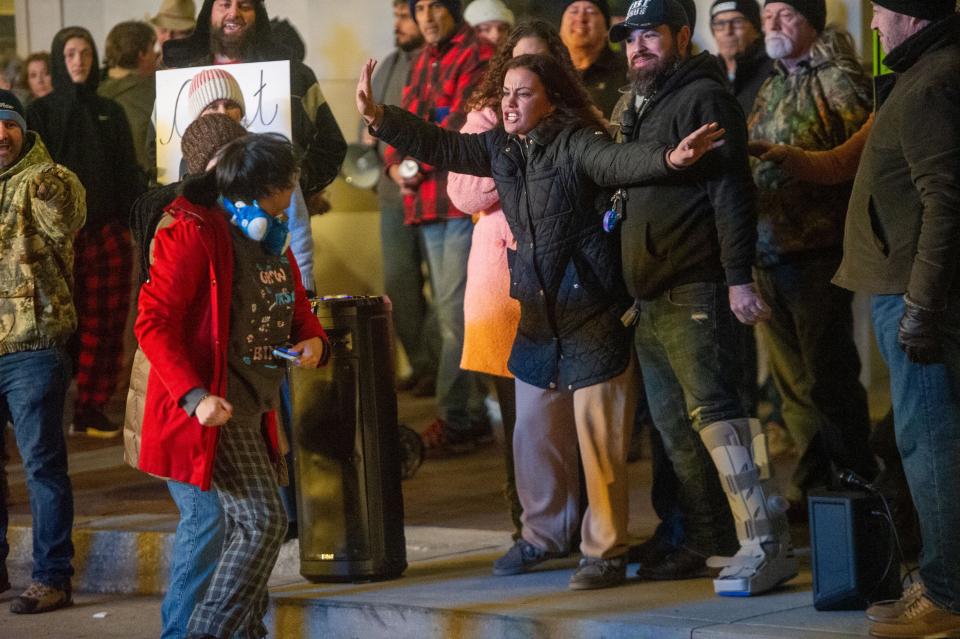Disagreement is essential. So we must learn to disagree better | Opinion
Consensus is a nice concept. It’s a simple one too: general agreement among the population. As an example, there’s long been a near consensus about a basic safety net for older Americans.
There’s very little consensus in politics and government these days. One exception is the growing, bipartisan agreement that Americans are losing the art of constructive conversation, losing the ability to disagree in a manner that animates the push and pull of vigorous policymaking.

It’s one thing not to agree on whether a movie or book is any good. Or what kind of music one likes. Why argue about a matter of taste? Once the disagreement is noted, a natural response among friends or acquaintances is often “We will just have to agree to disagree.” This is a conversation-stopper without much cost and one obvious benefit. Who wants to hear endless mutterings about the other’s bad taste?
Ideas and policy positions must be challenged
Governing is different. Ideas not challenged can grow stale, propped up by increasingly mindless repetition. When people are afraid to speak out, or just walk away, the resulting deterioration can create and empower demagogues. There’s disagreement everywhere in public space on any issue. But the proponents of any position stay in their echo chambers.
The cost of unchallenged policy positions could not be more obvious. It is very hard to know public opinion in China. Its leaders operate in an opposition vacuum. Their COVID-19 policy has been horrible by any measure. Using brutal lockdowns while relying on their own relatively ineffectual vaccine leaves China with an aging population with very little immunity.
The broader institutions of American politics are failing in their ability to channel social and political disagreement into constructive policymaking that takes advantage of the creative tension that can yield positive outcomes.
Hear more Tennessee voices:Get the weekly opinion newsletter for insightful and thought-provoking columns.
It is the continuing dialogue, debate and disagreement that provide the best hope of reaching a positive outcome. That is what a functional political process is all about, starting with ideas and principles that are tested through discussion, advocated publicly in various sorts of media and brought to the public sector for a decision.
That’s not happening. Was it ever? Well, certainly not perfectly, but a lot more constructively than it is today. The debates over the Voting Rights and Civil Rights Acts were intense, but they were debates with argumentation and ultimate resolution. The states’ rights position ultimately proved unpersuasive when confronted by the argument that all Americans had fundamental rights under the national Constitution. The disagreement was intense. People engaged. Many changed their minds.
The prototype for our present engagement was set with the Affordable Care Act. There was no Republican alternative. There was no legislative process, just agreement to disagree until Sen. John McCain broke ranks and the status quo remained.
To fix institutional dysfunction, start at the bottom and work up
The institutional dysfunction has filtered itself down to the individual level. So the fix can start at the bottom and work itself back up. Arthur Brooks, the William Henry Bloomberg Professor of the Practice of Public Leadership at Harvard University, sums it up well. Replace “We will just have to agree to disagree” with “We need to disagree better.”
There is a lot of wisdom here. Let’s agree to disagree about whether New York- or Chicago-style pizza is better. Let's disagree better about immigration or energy policy.
Disagreeing better isn’t happening much at the institutional level because the party activists reward those who celebrate their unreasonableness. Broadcast partners and social media political influences don’t help.
The rest of us don’t have to work within those constraints. We’re constrained only by our habits. We can separate the position from the person. We can avoid the temptation to attribute evil motives. We can seek to understand, if not agree with, those who see things through a different lens.
People tend to respond in kind. Most likely we’ll still disagree, but better, with an increased chance of compromise or an outcome that most consider legitimate.
William Lyons is Director of Policy Partnerships for the Howard Baker Jr. Center for Public Policy and Professor Emeritus of Political Science at the University of Tennessee. He also served as Chief Policy Officer for Knoxville Mayors Bill Haslam, Daniel Brown and Madeline Rogero.
The views and opinions expressed are those of the author and do not necessarily reflect the official policy or position of the Howard Baker Jr. Center for Public Policy or the University of Tennessee.
This article originally appeared on Knoxville News Sentinel: Opinion: Disagreement is essential. We must learn to disagree better

